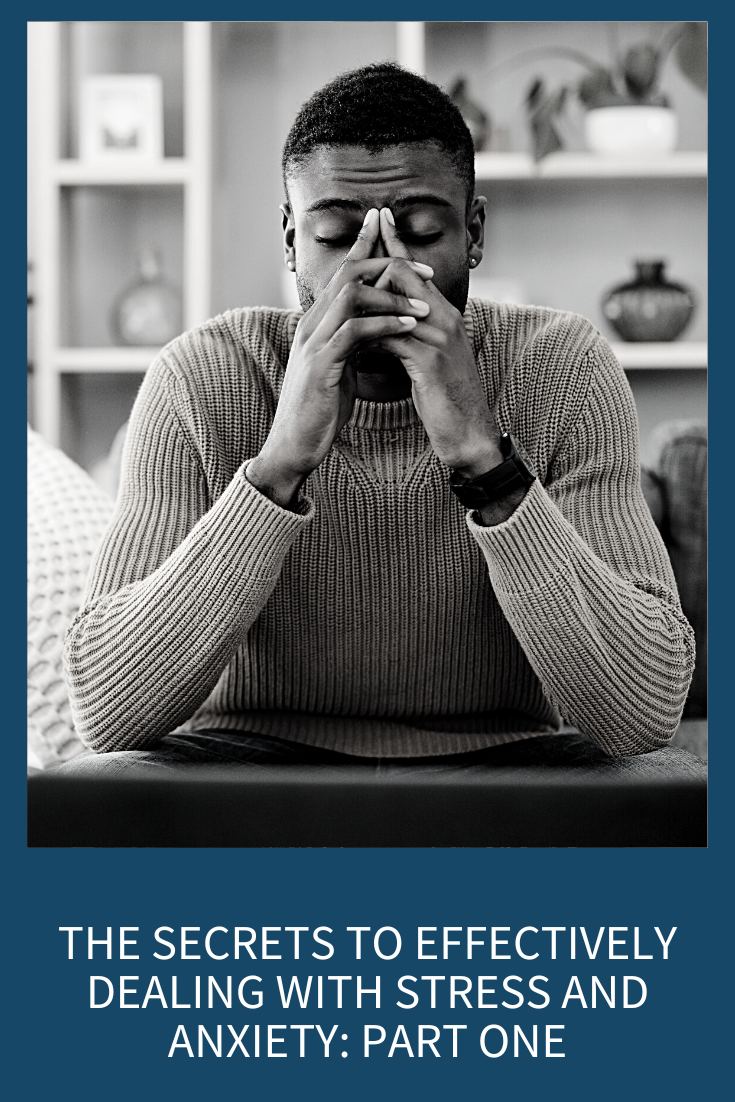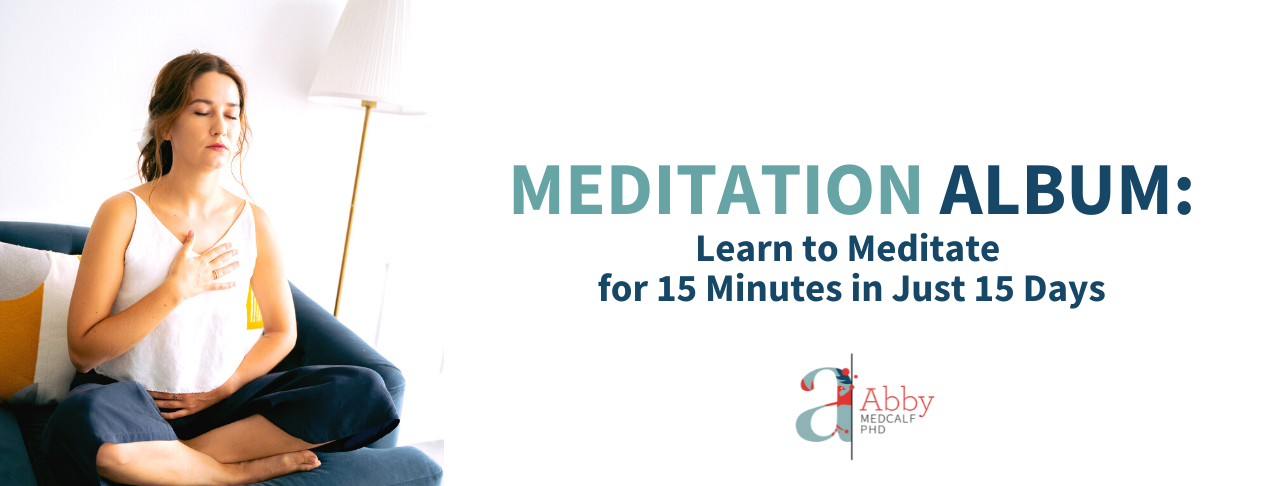
While stress and anxiety are linked, they’re actually two different states of being. And what you do to alleviate stress can actually make you more anxious! So you’ve got to know what tools to use when! I’ve got so many great strategies and tools that I’ve created this two-part series. Today, I’ll teach you the key difference between stress and anxiety and then outline my top seven tips for effectively dealing with stress. Next week, we’ll focus on anxiety as I outline my top tips. Since one of your best tactics for alleviating anxiety is to reduce the stress in your life, you’ll want to stay right here as I teach you everything you need to know to start living a more peaceful, joyful life.
7.5-minute read
The research is clear that your relationships with yourself and the people you love are worse off when you’re stressed out. A fight with your friend, money worries, that nasty commute, little Jimmy’s newly diagnosed gluten allergy, and those long work days bleed over into your relationship. The research shows that the more frustrations and problems you have outside your home, the more stress and decreased satisfaction you’ll have inside your home. This means your relationship with your partner and kids suffers.
How Stress Affects Your Relationship
When you’re stressed, you’re more likely to ruminate and lean towards negative thinking. When you’re in this type of mood, your partner gets stressed, and then they’re likely to withdraw from you in some way. When that happens, you start to withdraw and you’re both left feeling abandoned, misunderstood, and unsupported.
Not only does stress promote negative thinking, but it also:
- hampers our ability to focus
- impairs our ability to think and plan
- affects our judgment and listening skills
- drives our patience level down
- drives our irritability up
Of course, when all these areas are affected, our communication skills go down the drain! As we become more withdrawn and distracted, we also become less affectionate. We become more narrowly focused on ourselves and our own survival when we’re stressed, so we start competing with our partners for attention, time, money, and other resources. We forget we’re on the same team. Before long, your partner becomes the enemy.
Stress and Your Brain
The National Institute of Mental Health defines stress as the brain’s response to any demand, and these demands result in a set of physical responses. Famed stress researcher and author, Dr. Robert M. Sapolsky of Stanford University points out that chronic stress also affects our nervous system. It actually kills neurons in the hippocampus, which is a part of the brain’s Limbic System linked to memory and learning. Not only does it kill neurons, but it also weakens the connections between the surviving ones, making it difficult for them to communicate, which impairs the formation and retrieval of long-term memory. This also affects your ability to be realistic because negative things seem very big, while it’s hard to recall positive memories.
At the same time, chronic stress does the opposite in another part of the Limbic System called the amygdala, which is the seat of fear in your brain. While stress is busy shrinking and destroying things in the hippocampus, it’s actually feeding and expanding the amygdala! This is not good! It creates what we call a “hot” amygdala, which basically means that the fear part of your brain is hyper-reactive, lit up, and acts like a hysterical teenager!
So, when you’re stressed, you’ll notice negative stuff way more, and you’re less able to stop yourself from reacting badly to those things. You end up impatient and not giving others the benefit of the doubt. You end up more irritable and hostile, so arguments are way more likely to happen. This is why little things become huge arguments!
This is also the reason why your libido has left the building, and your sex life has likely gone out the window.
Difference between stress and anxiety:
Stress is a response to an external cause and subsides once that external issue is resolved. Anxiety, on the other hand, is a reaction to stress, and it’s an internal issue. Anxiety is a persistent or excessive worry that doesn’t go away, even when the stressor is no longer there. Since stress can trigger anxiety, keeping your stress level as low as possible is the first rule of thumb when dealing with anxiety.
Before we get into my top seven ways to effectively manage your stress, I want to strongly encourage anyone who is experiencing chronic stress or anxiety to seek out a mental health professional.
Tip #1: Meditation
Learning to meditate for 15 minutes a day will absolutely change your life. Learning to meditate isn’t as hard as you think, and it’s absolutely, the best way to deal with stress.
Tip #2: Promote relaxation
You’ve got to become an advocate for stress relief in all your relationships. This could mean scheduling a couples’ massage, making a commitment to exercise, a night out at a comedy show, a mani/pedi, or encouraging your partner to relax in some way they like (going out with the girls for a day of wine tasting, getting out with your guy friends for a few hours of soccer). Remember that your partner’s stress is your stress. You’re a shared resource, so helping them relax means helping yourself.
Tip #3: Make it a priority to get good sleep
Your day doesn’t start when you turn off your alarm in the morning. Your day starts when you set the alarm the night before. Getting your butt to bed at a reasonable hour and then getting shut-eye is key to having a good day. With good sleep, you’ll feel closer to your partner, be more productive and creative at work, be a more patient parent, and even lose weight and be more satisfied in your life overall. Sleep is the answer to your happy life! Getting solid sleep will help increase your willpower battery which is the best preventative measure you can have for feeling less stress.
Become fiercely protective of your sleep!
Tip #4: Reprioritize
What’s all this craziness for? Maybe it’s time to reprioritize what you’re doing and how you’re “living.” If you’re stressed all the time, with no end in sight, I wouldn’t call it living. If it’s short term, with an end date, that’s different (new baby, remodeling your kitchen, these all end). If it’s ongoing, it’s time to reassess and make some big decisions. If you had a year to live, is this what you’d be doing? Get things off your plate and add resources as needed.
Tip #5: Eat the Frog
Since stress is caused by an external factor, tackling issues head-on is always the way to go. And the best way to do this is to schedule it and make it the first thing you do. So, if you need to pay your bills and you’ve been putting it off, put it on your schedule for tomorrow morning before you do anything else. If you’ve been delaying making that root canal appointment, schedule the call for tomorrow first thing. Mark Twain called this “eat the frog,” which basically means doing the hardest thing first.
Tip #6: Increase your positive emotions
No matter what the stress is about, having more positive emotions in your life will help combat the negative effects of stress. Cultivating feelings like gratitude, joy, fun/laughter, contentment, and love is one of your best ways to deal with stress. Listen to an inspiring song, podcast, or book during your commute, have everyone share a “win” at dinner, take a walk after dinner, play a fun game with your friends or family, take that pottery class you’ve been putting off, join a team, or write in a gratitude journal daily. Stress makes us focus on the negative, so you can help combat it by actively deciding to focus on the positive instead. When you increase those positive emotions, you’ll get more perspective on your problems. With perspective, comes peace.
Tip #7: Practice RET
If you want to get rid of an unwanted emotion like stress or anger, you’ve got to change your thoughts first. It’s what we think or tell ourselves about an event that makes us feel something; it’s not the event itself. For example, two different people in a traffic jam react two different ways: one becomes angry, yelling and screaming, the other leans back and turns up the music and sees it as a chance to relax before getting to work. The reason for this is that it’s not the traffic jam that’s “causing” the anger or the calmness. It’s each person’s thoughts and beliefs about the traffic.
In other words, we feel the way we think about a situation or person. If you want to change how you feel, you’ve got to change how you think about that person or situation first. Rational Emotive Therapy, or RET, created by Dr. Albert Ellis, is an excellent tool to change your thoughts and beliefs so you can improve your feelings
Resources for Effectively Dealing with Stress and Anxiety: Part One
Finding the Spark Again (or for the First Time)
Meditation Album: Learn to Meditate for 15-minutes in just 15 days
Top 2 Tools for Getting $h*t Done!
The Real Reason You Have Negative Thoughts and 2 Things You Can do About It
Finally Stop Having Negative Thoughts
The Secret to Positive Thinking in All Your Relationships
The Simple Hack to Stop Your Negative Thoughts All Day
Change Your Feelings with This One Easy Tool







